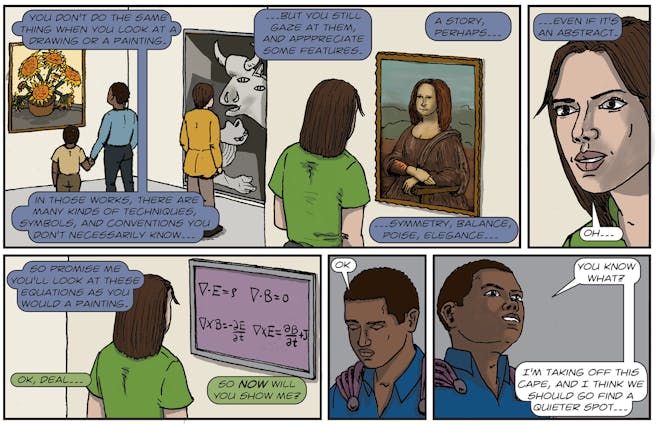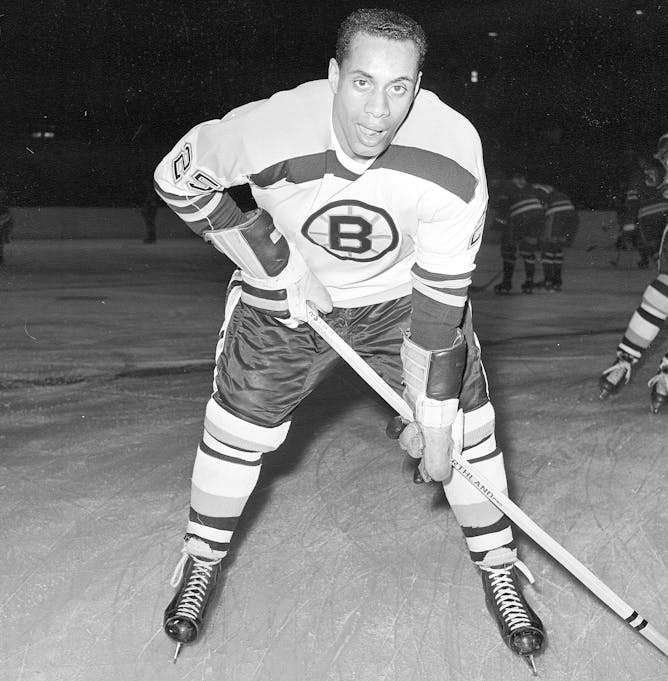|
The U.S. is in the throes of a harsh flu season – and Hurricane Maria is making things more complicated. Nearly half of all saline is normally produced in Puerto Rico. But now some hospitals are running low, forcing them to turn to less desirable alternatives. The situation exposes a serious flaw in our medical system. With so many supplies produced overseas, Texas A&M’s Morten Wendelbo and Christine Crudo Blackburn explain, the U.S. is always just one pandemic or natural disaster away from a public health crisis.
When you think of cultural pursuits, probably some combination of art, music, theater, film and even religion comes to mind. University of Southern California Dornsife physicist Clifford Johnson got sick of seeing science “portrayed as opposite to art, intuition and mystery.” So he taught himself the basics of graphic narratives. His new illustrated book aims to restore science to its rightful place as part of our general culture.
Most know that Jackie Robinson was the first African-American to break baseball’s color barrier. But what about the first black NHL player? Boston University’s Tom Whalen tells the story of Boston Bruins forward Willie O’Ree, who broke hockey’s color barrier 60 years ago today.
|

Approximately 80 percent of all pharmaceuticals used by Americans are produced overseas.
Beer5020/shutterstock.com
Morten Wendelbo, Texas A&M University ; Christine Crudo Blackburn, Texas A&M University
Thanks to Hurricane Maria, some US hospitals are experiencing a saline shortage. In times of emergency, medical supply chains break down too easily.
|

Science is one thread of culture – and entertainment, including graphic books, can reflect that.
'The Dialogues,' by Clifford V. Johnson (MIT Press 2017)
Clifford Johnson, University of Southern California – Dornsife College of Letters, Arts and Sciences
You might not think much about science topics as part of your everyday life. But science – like art, music, religion – is part of our culture, and scientists can help it reclaim its rightful place.
|

Boston Bruins forward Willie O'Ree warms up prior to a game against the New York Rangers in 1960.
AP Photo
Thomas J. Whalen, Boston University
A debilitating eye injury and racial epithets weren't enough to derail O'Ree's resolve.
|
|
|
Politics + Society
|
-
Miguel Angel Latouche, Universidad Central de Venezuela
Venezuela's terrible crisis has gotten worse, as children die of hunger and food riots grip the country. Still, President Maduro retains his grip on power. This is not what democracy looks like.
-
Andrea Freeman, University of Hawaii
The fear and distress caused by a false missile alarm last week in Hawaii is part of the 125- year legacy of American occupation.
|
|
|
|
Trending on site
|
-
Roger Beaty, Harvard University
Creative people seem to possess a unique connection between three brain networks that typically work separately.
-
Richard Gunderman, Indiana University
Don't believe these 10 common myths about the 1918 Spanish flu.
-
Jason Kirk, Elon University
Its plan to stop lending money for oil and gas projects embraces the spirit of the Paris agreement at a time when the U.S. is going in a different direction.
|
|
Today’s chart
|
-

 Subhash Kak
Oklahoma State University
Subhash Kak
Oklahoma State University
| |